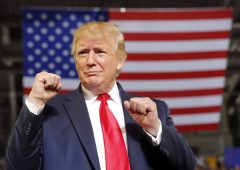Hamster Kombat’s Player Base and Token Value Plunge as Development Stalls
13.12.2024 11:30 1 min. read Alexander Zdravkov
Hamster Kombat, the once-popular game on Telegram, has seen a drastic decline in its player base, dropping by 43% in the last month alone.
The game, which was initially hailed for its rapid growth, now reports just 23 million monthly players, a sharp contrast to the 300 million players it boasted in August.
The game’s in-game token has also experienced a massive downturn, with its 24-hour trading volume plummeting by nearly 97%, from $1.5 billion in early November to a mere $52 million.
Hamster Kombat’s developers had promised additional content for the game, including the long-awaited “Season 2,” but those updates have yet to materialize. The game’s roadmap also indicated the introduction of NFT mechanics, but that, too, has not come to fruition.
Instead, the team recently unveiled the concept of a decentralized autonomous organization (DAO), allowing $HMSTR token holders to vote on decisions affecting the game’s future. However, there have been no details released on when this feature will launch or what it will entail.
The game operates within Telegram’s “tap-to-earn” ecosystem, leveraging the Open Network blockchain, but the team behind Hamster Kombat has remained anonymous, with no public information available about the company’s structure or location.
In contrast, another Telegram game, Notcoin, has introduced its own initiative, offering users rewards simply for holding tokens, though it remains to be seen if this strategy will fare better.
-
1
Market Odds of a U.S. Recession in 2025 Drop in Half Since May
05.07.2025 18:30 2 min. read -
2
Vitalik Buterin Warns Digital ID Projects Could End Pseudonymity
29.06.2025 9:00 2 min. read -
3
What Brian Armstrong’s New Stats Reveal About Institutional Crypto Growth
29.06.2025 15:00 2 min. read -
4
Donald Trump Signs “One Big Beautiful Bill”: How It Can Reshape the Crypto Market
05.07.2025 9:56 2 min. read -
5
Toncoin Launches UAE Golden Visa Program Through $100,000 Staking Offer
06.07.2025 12:04 2 min. read
BitGo Files Confidentially for IPO With SEC
BitGo Holdings, Inc. has taken a key step toward becoming a publicly traded company by confidentially submitting a draft registration statement on Form S-1 to the U.S. Securities and Exchange Commission (SEC).
Crypto Greed Index Stays Elevated for 9 Days — What it Signals Next?
The crypto market continues to flash bullish signals, with the CMC Fear & Greed Index holding at 67 despite a minor pullback from yesterday.
U.S. Public Pension Giant Boosts Palantir and Strategy Holdings in Q2
According to a report by Barron’s, the Ohio Public Employees Retirement System (OPERS) made notable adjustments to its portfolio in Q2 2025, significantly increasing exposure to Palantir and Strategy while cutting back on Lyft.
Key Crypto Events to Watch in the Next Months
As crypto markets gain momentum heading into the second half of 2025, a series of pivotal regulatory and macroeconomic events are poised to shape sentiment, liquidity, and price action across the space.
-
1
Market Odds of a U.S. Recession in 2025 Drop in Half Since May
05.07.2025 18:30 2 min. read -
2
Vitalik Buterin Warns Digital ID Projects Could End Pseudonymity
29.06.2025 9:00 2 min. read -
3
What Brian Armstrong’s New Stats Reveal About Institutional Crypto Growth
29.06.2025 15:00 2 min. read -
4
Donald Trump Signs “One Big Beautiful Bill”: How It Can Reshape the Crypto Market
05.07.2025 9:56 2 min. read -
5
Toncoin Launches UAE Golden Visa Program Through $100,000 Staking Offer
06.07.2025 12:04 2 min. read


